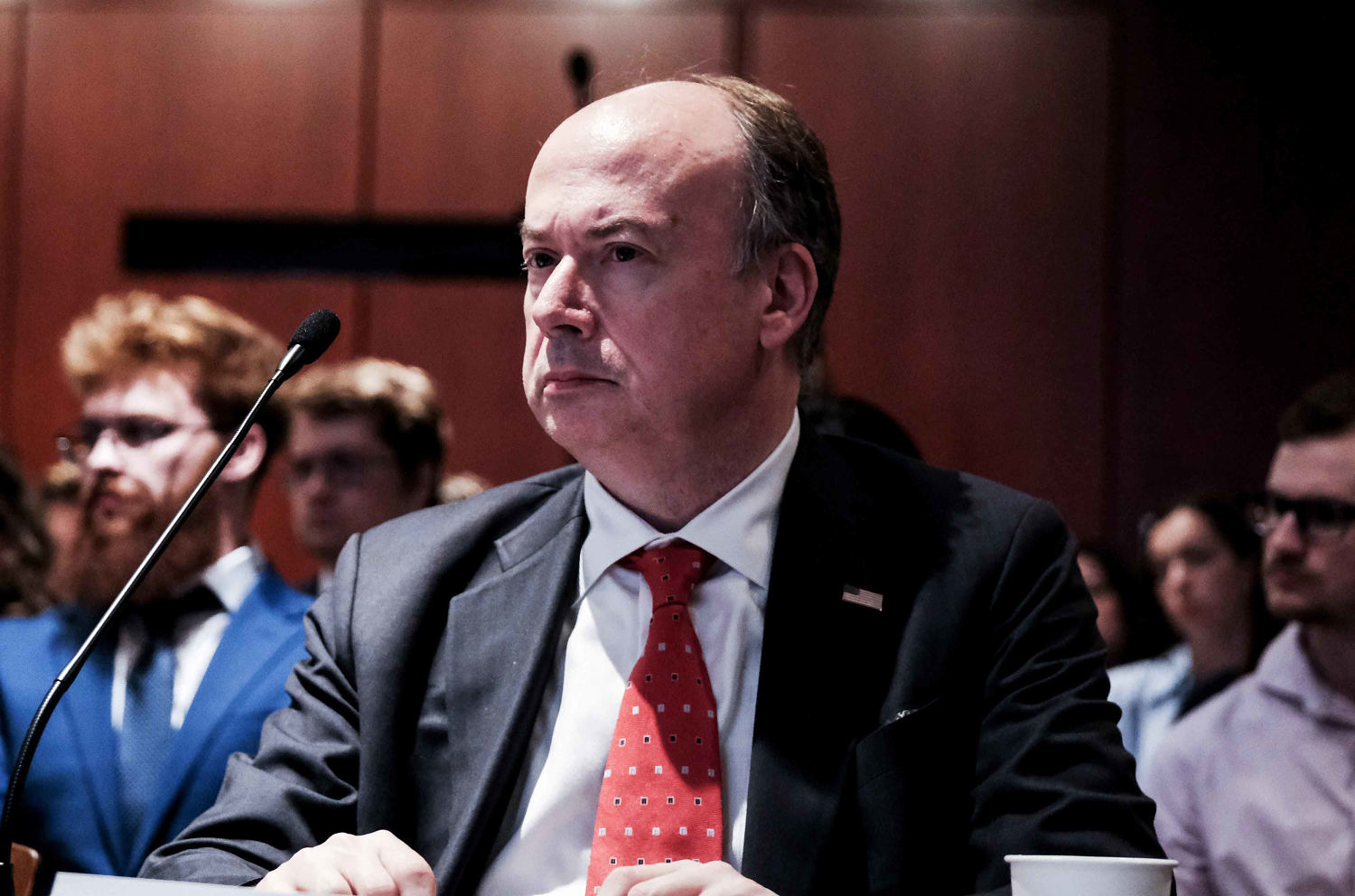Trump official Jeffrey Clark likely violated ethics rules with 2020 election theories, D.C. Bar panel finds


WASHINGTON — The disciplinary panel of the D.C. Bar reached a preliminary conclusion that former Trump Justice Department official Jeffrey Clark committed an ethical violation when he pushed conspiracy theories about the 2020 presidential election, including the allegation that the election was stolen via smart thermostats.
Clark, an environmental lawyer with no experience in criminal law, was the man former President Donald Trump considering naming as acting attorney general of the United States just days before the Jan. 6 attack on the U.S. Capitol. Trump ultimately backed down after his own Justice Department appointees told him there would be mass resignations if he went through with the move.
Clark faces potential disbarment and testified over the last two weeks before the panel, repeatedly asserting his Fifth Amendment rights against self-incrimination. Thursday’s preliminary finding will be considered by the D.C. Bar’s full board of professional responsibility before the D.C. Circuit Court of Appeals makes a final ruling on Clark’s bar status.
The question the disciplinary panel had to address, at its core, was this: Was Clark pushing ridiculous conspiracy theories about mass voter fraud in bad faith, so he could help usher Trump to a second term? Or is it possible that Clark truly believed the conspiracy theories he was peddling?
Hamilton Fox, the disciplinary counsel arguing for Clark’s disbarment, made the case Thursday during closing arguments that it was not possible for a person like Clark to believe those election lies because they had been repeatedly disproven.
“He had no rational basis to believe it,” Fox argued. “I can’t look in somebody’s mind, but when somebody tells you something repeatedly, in which all of the evidence is to the contrary, then yes, I believe that person is acting intentionally, is intentionally dishonest.”
“I suppose that maybe there’s an exception for somebody that’s deranged, I don’t — I’m not claiming Mr. Clark is deranged,” he said. “A rational person, faced with overwhelming evidence to the contrary, who still insists that the moon rises in the west, yes, that person is being intentionally dishonest.”
Much as Trump will likely do in his trials, Clark brought a parade of election deniers to give an intellectual spit-shine to election conspiracy theories, to try to create a world in which there was honest debate about whether Joe Biden won the election. Among them were a frequent guest on a network run by MyPillow founder and election denier Mike Lindell, as well a Pennsylvania activist whose “research has achieved a remarkable level of national salience among the far right, despite being replete with errors,” according to Votebeat.
Another witness, an expert in environmental law, said during testimony last week that he disagreed with Clark’s perspective on who his “client” was as a government attorney. Clark had testified last week that he believed his “client” was Trump himself, not the American people (as most Justice Department lawyers would say).
“I disagree with Mr. Clark on that, I think the client is the Department of Justice and the American people, not necessarily the occupant of the office of president,” E. Donald Ellio testified last week. “I understand that the president is the head of the executive branch. I also understand this is a very controversial and unsettled issue, there’s a lot of debate about it in administrative law and constitutional law.”
During closing arguments, Clark’s lawyer said his client had been advocating his sincerely held opinions and did not act dishonestly by pushing his theories about the election.
Former Deputy White House Counsel Pat Philbin testified last week that he had tried to talk Clark out of taking steps to help Trump remain in power, telling Clark it would destroy his career. But Clark responded that he felt he had a duty to raise concerns about the election results, according to Clark’s lawyer, Harry MacDougald.
“Most people in Washington don’t perform their duty at the cost of the destruction of their careers,” MacDougald told the panel.
Throughout his argument, MacDougald discussed a draft letter written by Clark which claimed that the Justice Department had identified “significant concerns that may have impacted the outcome of the election in multiple states.” Had Trump appointed Clark acting attorney general, Clark intended to send the letter to the governor of Georgia and leaders in the House and Senate, his lawyer said.
MacDougald argued that the draft letter was a proposal for internal discussion, emphasizing that it was never sent or made public at the time and said punishing Clark for proposing the letter would be akin to a “pure thought crime.”
“Lawyers all over the country are watching this case,” MacDougald said. “We need brave lawyers. You may not agree with Mr. Clark about this, but if he gets wrung up on a confidential, internal proposal that’s never adopted, never goes out, where do you stop?”
“While you may not like Mr. Clark as the man who stood apart from the crowd in this case, there may be a situation in the current administration or a future administration where a lawyer is against the crowd and they need to be protected,” he continued.
Gillian Feiner, senior counsel at the States United Democracy Center, said that the board’s preliminary finding “is another step towards holding Clark accountable” for conduct that undermined democracy and the rule of law.
“We’ve already seen other attorneys like Rudy Giuliani, John Eastman, and Jenna Ellis face consequences for their actions concerning the 2020 election, and today’s decision signals that Jeffrey Clark is up next,” Feiner said. “No one is above the law.”







